
-
 Studio Tech Provides Wi-Fi And Internet for The Superman Movie Press Junket
Studio Tech Provides Wi-Fi And Internet for The Superman Movie Press Junket -
 Superman movie Press Junket @ Buttercup Venues
Superman movie Press Junket @ Buttercup Venues -
 Honoring Stories Worth Telling Since 2009
Honoring Stories Worth Telling Since 2009
All Ages - All Cultures - All Media -
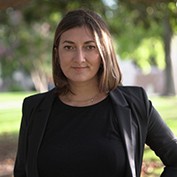 Xenia Lappo Joins ESTA as New Program Manager for Membership & Events
Xenia Lappo Joins ESTA as New Program Manager for Membership & Events -
 NOMINATIONS ANNOUNCED FOR THE LOCATION MANAGERS GUILD INTERNATIONAL AWARDS
NOMINATIONS ANNOUNCED FOR THE LOCATION MANAGERS GUILD INTERNATIONAL AWARDS -
 Nathan Wilson and Chris Connors discuss creating for children's television with ZEISS Supreme Prime lenses
Nathan Wilson and Chris Connors discuss creating for children's television with ZEISS Supreme Prime lenses -
 Luxury Solar Restroom Trailer Sustainability
Luxury Solar Restroom Trailer Sustainability -
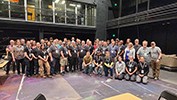 Midwest Rigging Intensive Returns with Touring Rigging Theme
Midwest Rigging Intensive Returns with Touring Rigging Theme -
 Westside Digital Mix: Venice Edition
Westside Digital Mix: Venice Edition -
 Custom Prop Rentals: Bringing Your Dream Event to Life with Life-Size Magic
Custom Prop Rentals: Bringing Your Dream Event to Life with Life-Size Magic -
 Custom Pool Floats That Steal the Show
Custom Pool Floats That Steal the Show -
 Malibu Autobahn Dresses Coachella 2025 for Shoreline Mafia
Malibu Autobahn Dresses Coachella 2025 for Shoreline Mafia -
 Thunder Studios Wins Nine 2025 Telly Awards
Thunder Studios Wins Nine 2025 Telly Awards -

-
 LCW Props Is Your One Stop Prop Shop
LCW Props Is Your One Stop Prop Shop -
 Venues in Los Angeles for Activations and Filming
Venues in Los Angeles for Activations and Filming -

-

-
 Honoring Stories Worth Telling Since 2009 - All Ages - All Cultures - All Media
Honoring Stories Worth Telling Since 2009 - All Ages - All Cultures - All Media -
 Buttercup Venues Accepting Submissions to Help Property Owners Monetize Their Spaces
Buttercup Venues Accepting Submissions to Help Property Owners Monetize Their Spaces -
 Studio Animal Services Stars in Latest Fancy Feast Commercial
Studio Animal Services Stars in Latest Fancy Feast Commercial -
 WDM celebrates Summer at the famed Michael's Santa Monica
WDM celebrates Summer at the famed Michael's Santa Monica -
 Studio Technical Services Inc.
Studio Technical Services Inc.
Spring 2025 Newsletter -
 From Call to Setup: Coffee House Industries Lights Up Netflix Is a Joke at the Avalon
From Call to Setup: Coffee House Industries Lights Up Netflix Is a Joke at the Avalon -
 WLA3D produces scale model for Fox Grip
WLA3D produces scale model for Fox Grip -
 Filming Locations and Event Venues Los Angeles
Filming Locations and Event Venues Los Angeles -
 Scenic Expressions Launches a Full-Service Liquidation Solution for the Film & TV Industry
Scenic Expressions Launches a Full-Service Liquidation Solution for the Film & TV Industry -
 Producers Need Reel Monster Trucks for Reel Productions
Producers Need Reel Monster Trucks for Reel Productions -
 Meet Michael Way | Engineer
Meet Michael Way | Engineer -
 In Development: ZEISS Virtual Lens Technology Elevating VFX with physically based lens effects
In Development: ZEISS Virtual Lens Technology Elevating VFX with physically based lens effects -
 (2) PREMIER AV ACTIONS
(2) PREMIER AV ACTIONS -
 RSVP - 80 Films & Tech - Meet the Visionaries - EMMY, Telly, Peabody winners and more
RSVP - 80 Films & Tech - Meet the Visionaries - EMMY, Telly, Peabody winners and more -
 New Arrivals Are Here - Check Out LMTreasures.com
New Arrivals Are Here - Check Out LMTreasures.com -
 Film-Friendly Retail Space at Tejon Outlets
Film-Friendly Retail Space at Tejon Outlets -
 Behind Every Great Production, There's a Great Move
Behind Every Great Production, There's a Great Move -
 Buttercup Venues' recent work with Invisible Dynamics & Blue Revolver
Buttercup Venues' recent work with Invisible Dynamics & Blue Revolver -
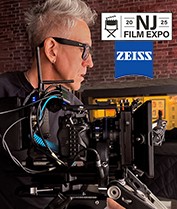 Join ZEISS Cinema at this year's NJ Film Expo on Thursday, May 1
Join ZEISS Cinema at this year's NJ Film Expo on Thursday, May 1 -
 The Location Managers Guild International (LMGI) announces that its 12th Annual LMGI Awards Show will be held on Saturday, August 23, 2025
The Location Managers Guild International (LMGI) announces that its 12th Annual LMGI Awards Show will be held on Saturday, August 23, 2025 -
 Get Your Production Supplies Now While Prices Are Stable*
Get Your Production Supplies Now While Prices Are Stable*
Rose Brand Is Your One Stop Shop -
 Immersive Sound for your next production from TrueSPL
Immersive Sound for your next production from TrueSPL -
 WeCutFoam Fabricating Large Scale Props and Decor for Companies & Products Launching Events
WeCutFoam Fabricating Large Scale Props and Decor for Companies & Products Launching Events -
 The "CA-Creates" eGroup Network
The "CA-Creates" eGroup Network -
 The Location Managers Guild International Announces the Newly Elected 2025 LMGI Board of Directors
The Location Managers Guild International Announces the Newly Elected 2025 LMGI Board of Directors -
 Production Moves: How to Find the Most Qualified Mover
Production Moves: How to Find the Most Qualified Mover -
 SAG-AFTRA Talent Payments @ Production Payroll Services
SAG-AFTRA Talent Payments @ Production Payroll Services -

-

-
 New Everyday Low Prices on Rigging Hardware
New Everyday Low Prices on Rigging Hardware
Take a Look at 20% Lower Prices on Average -
 Tejon Ranch introduces its Premium Ranch Cabins
Tejon Ranch introduces its Premium Ranch Cabins -
 Our Enchanting Garden Collection is Growing!
Our Enchanting Garden Collection is Growing! -

-

-
 Top Entertainment CEOs & Industry Titans Join Forces for Groundbreaking New Media Film Festival®
Top Entertainment CEOs & Industry Titans Join Forces for Groundbreaking New Media Film Festival® -
 Tejon Ranch opens Diner location for your next Production
Tejon Ranch opens Diner location for your next Production -
 Discover the Performance of ZEISS Otus ML
Discover the Performance of ZEISS Otus ML
Deep Dive into the Features and Technology -
 Step and Repeat LA Enhances Printing Capabilities with HP Latex R1000 Plus Flatbed Printer
Step and Repeat LA Enhances Printing Capabilities with HP Latex R1000 Plus Flatbed Printer -
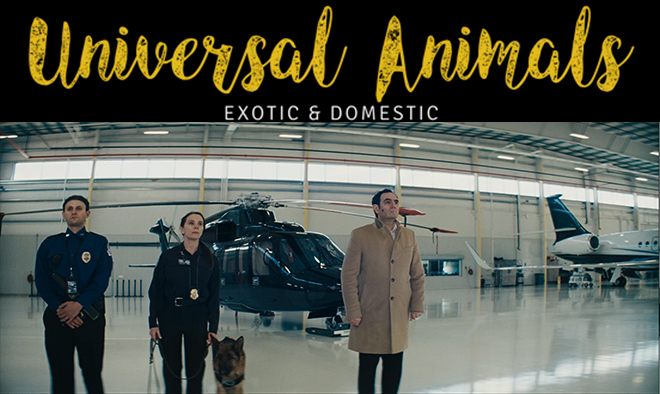 Universal Animals cast the dog in Anora!
Universal Animals cast the dog in Anora! -
 Burbank Stages is Now Open with upgraded support space
Burbank Stages is Now Open with upgraded support space -

-
 Buttercup Venues Grows Portfolio with Exciting New Locations for Filming and Events
Buttercup Venues Grows Portfolio with Exciting New Locations for Filming and Events -
 Fashion District Suite 301
Fashion District Suite 301 -
 Something new is coming for Photographers
Something new is coming for Photographers
Mark Your Calendar - February 25th -
 WLA3D completes scale model of vintage Knott's Berry Farm attraction
WLA3D completes scale model of vintage Knott's Berry Farm attraction -
 New Media Film Festival has invited you to submit your work via FilmFreeway!
New Media Film Festival has invited you to submit your work via FilmFreeway! -
 WeCutFoam Collaborated Once More with Children's Miracle Network Hospitals
WeCutFoam Collaborated Once More with Children's Miracle Network Hospitals -

-
 EigRig SLIDE-R1 Revolutionizes Filmmaking Production with Innovation
EigRig SLIDE-R1 Revolutionizes Filmmaking Production with Innovation -

-

-

-
 Practicals Rental Lighting Welcomes the Jucolor UV Flatbed Printer
Practicals Rental Lighting Welcomes the Jucolor UV Flatbed Printer -
 GBH Maintenance Inc. Has Grown
GBH Maintenance Inc. Has Grown -
 The Rarest Stars Shine Brightest
The Rarest Stars Shine Brightest -
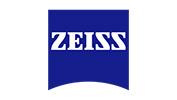 Affected by the ongoing California wildfires
Affected by the ongoing California wildfires -
 Get One-Stop Shopping...
Get One-Stop Shopping... -
 Buttercup Venues Expands
Buttercup Venues Expands -

-
 Los Angeles Office Spaces: Versatile Backdrops for Filming
Los Angeles Office Spaces: Versatile Backdrops for Filming -
 All Creatures Great and small holiday commercial for Montefiore hospital
All Creatures Great and small holiday commercial for Montefiore hospital -
 DEEP CLEANS WAREHOUSE FOR SUPER BOWL COMMERCIAL
DEEP CLEANS WAREHOUSE FOR SUPER BOWL COMMERCIAL -
 New Production Hub in Los Angeles
New Production Hub in Los Angeles -
 Carlos R. Diazmuñoz
Carlos R. Diazmuñoz -
 The Secret Behind Hollywood Premieres
The Secret Behind Hollywood Premieres -
 WeCutFoam Specializes in Decor
WeCutFoam Specializes in Decor -
 Studio Technical Services Inc.
Studio Technical Services Inc.
Fall 2024 Update -
 New Media Film Festival has invited you to submit your work
New Media Film Festival has invited you to submit your work -

-
 Available again!
Available again!
Studio 301 - 16,000 Sq. Ft. -
 Elevate Your Production with SoundPressure Labs'
Elevate Your Production with SoundPressure Labs' -
 Pro-Cam expands rental operation...
Pro-Cam expands rental operation... -
 NATIONAL ASSOCIATION OF LATINO INDEPENDENT PRODUCERS
NATIONAL ASSOCIATION OF LATINO INDEPENDENT PRODUCERS -
 New Sony A9 III Reviews
New Sony A9 III Reviews -
 New, Heavyweight, Lustrous, Shimmering 56" Elana IFR Fabric
New, Heavyweight, Lustrous, Shimmering 56" Elana IFR Fabric -
 JOIN US IN ORLANDO THIS NOVEMBER!
JOIN US IN ORLANDO THIS NOVEMBER! -
 BLUE MOON CLEANING
BLUE MOON CLEANING
RESTORES MUSIC-MAKING -
 Another Collaboration Between WeCutFoam and Event Planner
Another Collaboration Between WeCutFoam and Event Planner -
 BLUE MOON CONGRATULATES 2024 COLA FINALISTS
BLUE MOON CONGRATULATES 2024 COLA FINALISTS -
 Fall Production News & Events
Fall Production News & Events -
 Not just green, but mighty Verde
Not just green, but mighty Verde -
 Introducing...
Introducing...
Restaurant/Bar/Venue in Encino -

-
 ESTA and Earl Girls, Inc. Launch $100,000 TSP Fundraising Challenge
ESTA and Earl Girls, Inc. Launch $100,000 TSP Fundraising Challenge -
 There's still time to register for ESTA's Plugfest
There's still time to register for ESTA's Plugfest -

-
 BLUE MOON CLEANING SEES SPIKE IN MAJOR LA FEATURE FILMING
BLUE MOON CLEANING SEES SPIKE IN MAJOR LA FEATURE FILMING -
 "The Secret Behind Hollywood Premieres"
"The Secret Behind Hollywood Premieres" -

Amoeba Records on Sunset
&
SuperMarket in K-Town -
 "Alice in Wonderland" tea party brought to life...
"Alice in Wonderland" tea party brought to life... -
 Filming With Production Ready Aviation Equipment
Filming With Production Ready Aviation Equipment -

-

-
 A5 Events - Take Your Event to The Next Level
A5 Events - Take Your Event to The Next Level -
 The Original Amoeba Records Venue
The Original Amoeba Records Venue
& The SuperMarket -
 Doc Filmmaker Jennifer Cox
Doc Filmmaker Jennifer Cox -
 Red, White or Blue Rental Drapes
Red, White or Blue Rental Drapes -
 Introducing Tuck Track Invisible Framing for Fabric Prints
Introducing Tuck Track Invisible Framing for Fabric Prints -

-
 American Movie Company's LED Wall Studio Sale
American Movie Company's LED Wall Studio Sale -
 Black 360 Independence Studio
Black 360 Independence Studio -
 Nominations are open for the 2025 ESTA Board of Directors!
Nominations are open for the 2025 ESTA Board of Directors! -
 Custom Prop Rentals is moving to a new, larger location!
Custom Prop Rentals is moving to a new, larger location! -
 Jazz Up Your Event with the Custom Embrace Display
Jazz Up Your Event with the Custom Embrace Display -
 Pro-Cam opens Las Vegas branch, expanding rental operation
Pro-Cam opens Las Vegas branch, expanding rental operation -
 New ShowLED Starlight Drops
New ShowLED Starlight Drops -
 Costume House Sidewalk Sale
Costume House Sidewalk Sale -
 Working Wildlife's newly renovated 60 acre ranch available for Filming
Working Wildlife's newly renovated 60 acre ranch available for Filming -
 Location Manager Bill Bowling
Location Manager Bill Bowling
to Receive the Trailblazer Award -

-
 Mr. Location Scout is in Lake Tahoe
Mr. Location Scout is in Lake Tahoe -
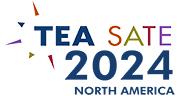 DreamMore Resort Fountain
DreamMore Resort Fountain -
 Valley Film Festival
Valley Film Festival
Greetings from the (818): -
 2024 Changemaker Awards and Artist Development Showcase
2024 Changemaker Awards and Artist Development Showcase -
 ZEISS Conversations with Jack Schurman
ZEISS Conversations with Jack Schurman -
 Collaboration Between WeCutFoam and Yaamava Resort & Casino
Collaboration Between WeCutFoam and Yaamava Resort & Casino -
 Location Managers Guild International Awards
Location Managers Guild International Awards -
 Molding Cloth
Molding Cloth
Make Fabulous Textured Designs -
 WeCutFoam Specializes in Large Events
WeCutFoam Specializes in Large Events -
 Introducing Truck Track Invisible Framing for Fabric Prints
Introducing Truck Track Invisible Framing for Fabric Prints -
 GBH Maintenance is back at Herzog Wine Cellars
GBH Maintenance is back at Herzog Wine Cellars -
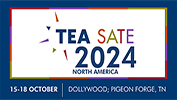 SATE NORTH AMERICA 2024
SATE NORTH AMERICA 2024 -
 Production News & Events Summer Edition
Production News & Events Summer Edition -
 Four Amazing Architectural Locations!
Four Amazing Architectural Locations! -
 * BIG SAVINGS * ON BIG STUDIOS
* BIG SAVINGS * ON BIG STUDIOS -
 Let Your Brand Stand Tall!
Let Your Brand Stand Tall! -
 Sue Quinn to Receive Lifetime Achievement Award
Sue Quinn to Receive Lifetime Achievement Award -
 ZEISS Cinema at Filmscape Chicago
ZEISS Cinema at Filmscape Chicago -
 GBH Maintenance Is the Standard for Commercial Maintenance
GBH Maintenance Is the Standard for Commercial Maintenance -
 Come Join Us at Cine Gear Expo 2024
Come Join Us at Cine Gear Expo 2024 -
 Available now:
Available now:
6th Street Gallery & Venue -
 Thunder Studios Triumphs with Five Telly Awards
Thunder Studios Triumphs with Five Telly Awards -
 Reddit Went Public IPO - WeCutFoam Was There With Decor
Reddit Went Public IPO - WeCutFoam Was There With Decor -
 AirDD's Hottest New Product
AirDD's Hottest New Product
for 2024 Events -
 GBH Maintenance Sets the Standard for Window Cleaning
GBH Maintenance Sets the Standard for Window Cleaning -
 Haigwood Studios collaboration with the UGA Dodd School of Art
Haigwood Studios collaboration with the UGA Dodd School of Art -

-
 RX GOES TO 11!
RX GOES TO 11!
with Mike Rozett -
 Don't Be A Square - Think Outside The Box!!
Don't Be A Square - Think Outside The Box!! -
 WeCutFoam Fabricates Realistic Lifesize Props
WeCutFoam Fabricates Realistic Lifesize Props -

-
 Exposition Park Stage/Venue
Exposition Park Stage/Venue -
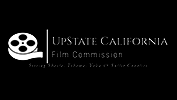 Production Update From UpState California Film Commission
Production Update From UpState California Film Commission -
 Base Camp With All The Extras
Base Camp With All The Extras -
 LAPPG AT THE ZEISS CINEMA SHOWROOM
LAPPG AT THE ZEISS CINEMA SHOWROOM -
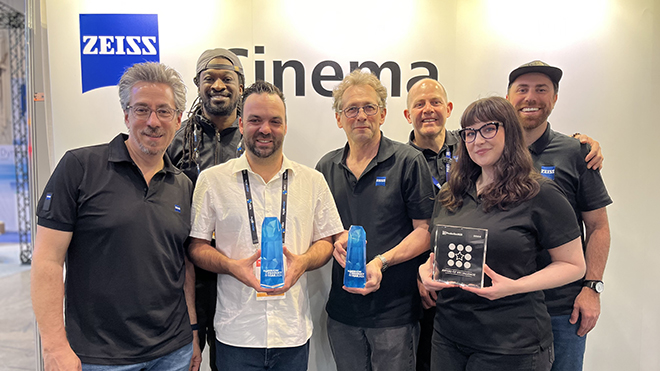 ZEISS Nano Primes and ZEISS CinCraft Scenario Received NAB Show 2024
ZEISS Nano Primes and ZEISS CinCraft Scenario Received NAB Show 2024 -
 Cranium Camera Cranes Introduces the all new Tankno Crane!
Cranium Camera Cranes Introduces the all new Tankno Crane! -
 Come Join Us at Cine Gear Expo 2024
Come Join Us at Cine Gear Expo 2024 -
 FAA Drill Burbank Airport
FAA Drill Burbank Airport
(federal aviation administration) -
 Exclusive Stahl Substitute Listing from Toni Maier-On Location, Inc.
Exclusive Stahl Substitute Listing from Toni Maier-On Location, Inc. -
 GBH Maintenance: Elevating Janitorial Standards Across Los Angeles
GBH Maintenance: Elevating Janitorial Standards Across Los Angeles -
 LOCATION CONNECTION has the best RANCHES FOR FILMING!
LOCATION CONNECTION has the best RANCHES FOR FILMING! -
 Hollywood Studio Gallery has Moved
Hollywood Studio Gallery has Moved -
 AirDD's inflatable "Kraken" designs transformed Masked Singers
AirDD's inflatable "Kraken" designs transformed Masked Singers -
 GBH maintenance Provided a Hollywood Shine for Herzog Wine Cellars
GBH maintenance Provided a Hollywood Shine for Herzog Wine Cellars -
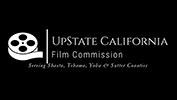 Production News & Events
Production News & Events
Spring Newsletter -
 Immersive Venue/ Black Box/ Stage
Immersive Venue/ Black Box/ Stage
2024 DTLA Arts District -

-
 Exclusive Malibu Listing from Toni Maier - On Location, Inc.
Exclusive Malibu Listing from Toni Maier - On Location, Inc. -
 Empowered Collaborates with Harlequin Floors
Empowered Collaborates with Harlequin Floors -
 Movie Premiere, TCL Chinese Theater
Movie Premiere, TCL Chinese Theater -
 Studio Tech provides services for the Grammy House
Studio Tech provides services for the Grammy House -
 Sora AI Text To Video
Sora AI Text To Video -
 New Apex Photo Studios
New Apex Photo Studios
Website: Rent Smarter, Create More & earn rewards! -

-
 How Ideal Sets Founder Harry Hou Cracked the Code on Affordable Standing Sets
How Ideal Sets Founder Harry Hou Cracked the Code on Affordable Standing Sets -
 New Storage & Co-Working Spaces In Boyle Heights near Studios
New Storage & Co-Working Spaces In Boyle Heights near Studios
For Short or long term rental -
 Auroris X Lands at A Very Good Space
Auroris X Lands at A Very Good Space -
 GBH Maintenance Completes Work on 33000ft Production Space
GBH Maintenance Completes Work on 33000ft Production Space -
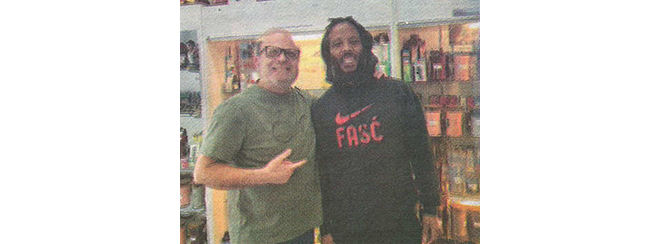 MUSICIAN ZIGGY MARLEY IS ANOTHER HAPPY.CUSTOMER OF MAILBOX TOLUCA LAKE'S 'DR. VOICE'
MUSICIAN ZIGGY MARLEY IS ANOTHER HAPPY.CUSTOMER OF MAILBOX TOLUCA LAKE'S 'DR. VOICE' -
 Custom Digitally Printed Commencement Banners & Backdrops
Custom Digitally Printed Commencement Banners & Backdrops -
 Rose Brand, SGM, Bill Sapsis, Sapsis Rigging, and Harlequin Floors Sponsor NATEAC Events
Rose Brand, SGM, Bill Sapsis, Sapsis Rigging, and Harlequin Floors Sponsor NATEAC Events -
 Kitty Halftime Show air for Animal Planet's Puppy Bowl
Kitty Halftime Show air for Animal Planet's Puppy Bowl -
 Georgia Animal Actors Persents Merlin
Georgia Animal Actors Persents Merlin -
 ESTA Launches Revamped NATEAC Website
ESTA Launches Revamped NATEAC Website -
 Mollie's Locations
Mollie's Locations -
 ZEISS Cinema News for February
ZEISS Cinema News for February -

-
 Seamless Fabric Backdrops up to 140ft x 16ft, Printed Floors...
Seamless Fabric Backdrops up to 140ft x 16ft, Printed Floors... -
 Check out all the Pioneer Gear at Astro!
Check out all the Pioneer Gear at Astro! -
 Production News & Events
Production News & Events -
 All of Your Production Supplies Gathered in Just One Place
All of Your Production Supplies Gathered in Just One Place -
 Meet the RED V-Raptor [X]
Meet the RED V-Raptor [X] -
 Sit Back and Enjoy Some Laughs
Sit Back and Enjoy Some Laughs -
 Mr. Location Scout Scouted and Managed Locations
Mr. Location Scout Scouted and Managed Locations -
 Introducing...
Introducing...
Landmark Restaurant in Encino -
 The White Owl Studio is celebrating all that is new!
The White Owl Studio is celebrating all that is new! -

-
 Last Call for NATEAC 2024 Proposals
Last Call for NATEAC 2024 Proposals -
 NOMINATIONS ANNOUNCED FOR THE
NOMINATIONS ANNOUNCED FOR THE
2024 MUAHS -
 Voted Best New Stage Rigging Products at LDI 2023
Voted Best New Stage Rigging Products at LDI 2023 -
 NEED MORE SPARKLE IN THE FLOOR?
NEED MORE SPARKLE IN THE FLOOR? -
 David Panfili to Appoint Michael Paul as President of Location Sound Corp.
David Panfili to Appoint Michael Paul as President of Location Sound Corp.
industry news
The Latest Industry News for the Exciting World of Production.
Creative Handbook puts together a bi-monthly newsletter featuring
up-to-date information on events, news and industry changes.
Add My Email
AUERBACH TRANSLATING, SUBTITLING and DUBBING: DO's and DON'Ts
Octiber 11, 2021

Expressions. Nuances. Cultural adaptation. These are some of the issues that a professional language agency must consider when translating films.
Around 72% of the world does not speak English. As studios know, that opens a huge market for films either for multicultural communities at home (Hispanics, Chinese, Russians, Vietnamese, etc.) or for far larger distribution markets abroad. And of course, a version targeted to ethnic groups here can be used in their country of origin there.
Among others, two interesting projects have bookended Auerbach International's 30-year expertise --
Shortly after we opened in 1991, a consultant for Disney's Beauty and the Beast contacted us. The studio was negotiating a contract with the actress dubbing the voice of Belle in Spain and needed various iterations of the contract translated overnight from and into Spanish. Back in those Dark Ages of no internet and no email, most overseas communications were done by fax. The negotiators in LA faxed us the English contract to translate, we faxed the Spanish to the negotiators in Madrid who in turn faxed us the needed changes to be rendered into English. And vice versa.
Fast forward to 2020. We were very honored to translate and subtitle into 21 languages The Great 14th, the world's only film narrated by and about the life of the (current 14th) Dalai Lama. Included in the 21 languages were Chinese, Tibetan, Mongolian, Burmese, Thai, Malay, Hindi, Arabic, Russian and common European ones.
The first step in any film translation is normally a transcription, writing the dialog in its native language. If a film studio has a script from which the actors are not extemporaneously deviating, the script will work fine. Sometimes however, clients have audio interviews, podcasts or TV broadcasts which they want to share with a far wider non-English audience. In either case, any language agency needs something written - the script or the transcript -- to translate from.
A proper translation must replicate concepts, not direct words. Google Translate and other software programs are generally more literal. For example, a year ago Google translated the simple sentence, "I'm on the fence about coming to your party" into French as, "I am on top of the fence about if I can come to your party." The current Google rendering into French is "I'm at the point of coming to your party." Neither version is accurate; "on the fence" is an expression meaning that the speaker is undecided about what action to take.
This is a prime example of why studios should always, without exception, rely on professional linguists. And "professional" does not mean your foreign-born neighbor, your cousin who used to live abroad, or Maria down the hall who comes from there. Speaking a language in no way qualifies the person to be a translator (conveyor of written communication) or even more as an interpreter (conveyor of spoken communication). Both translating and interpreting are highly specialized fields that few people in the world can do well.
To do the process accurately, Auerbach International's professional linguists must meet five criteria:
1. Master's level or equivalent training as translators or interpreters;
2. Work only into their native languages;
3. Complete knowledge of the subject terminology in both the original and the target (destination) language;
4. At least ten years' ongoing experience to keep their skills honed; and
5. Possession of the proper software. That does not mean translation programs. It does mean tools that create a Translation Memory, software that captures the words and phrases as the translator is working. Then when these terms repeat later in the script, the computer re-calls them immediately. The translation team can change them if the context requires or decide that the dialog will flow fine by keeping consistent terminology. And the more "matches" the computer finds, the more the client benefits from price reductions.
Cultural adaption is also equally important and can go very wrong. For example, the film Like Water for Chocolate was translated literally from Spanish and lost its Mexican connotation of reaching the peak of sexual arousal.
Some additional pointers:
• The English script must be time-coded before the translation begins so that the production team knows where to place the subtitles or dubbing.
• Studios should also ensure that the film is 100% complete before the linguistic process starts.
• Any change to the film itself will cause the subtitling or dubbing to be re-done, resulting in skyrocketing costs.
• If changes are critical, studios should rename and date each master version.
Books and films require highly skilled linguists to get the nuances, expressions, dialogs and cultural references right. And that's why any studio should rely on an experienced, highly professional language agency such as Auerbach with the expertise to implement all phases - transcription, translation, subtitling, dubbing, film-name and publicity review to ensure no cultural gaffes, and more - all for many languages and with guaranteed accuracy.
Philip Auerbach, President
Auerbach International Inc.
www.auerbach-intl.com
CA tel 415 529 0042 x 107
PA tel 267 865 6890 x 107
Around 72% of the world does not speak English. As studios know, that opens a huge market for films either for multicultural communities at home (Hispanics, Chinese, Russians, Vietnamese, etc.) or for far larger distribution markets abroad. And of course, a version targeted to ethnic groups here can be used in their country of origin there.
Among others, two interesting projects have bookended Auerbach International's 30-year expertise --
Shortly after we opened in 1991, a consultant for Disney's Beauty and the Beast contacted us. The studio was negotiating a contract with the actress dubbing the voice of Belle in Spain and needed various iterations of the contract translated overnight from and into Spanish. Back in those Dark Ages of no internet and no email, most overseas communications were done by fax. The negotiators in LA faxed us the English contract to translate, we faxed the Spanish to the negotiators in Madrid who in turn faxed us the needed changes to be rendered into English. And vice versa.
Fast forward to 2020. We were very honored to translate and subtitle into 21 languages The Great 14th, the world's only film narrated by and about the life of the (current 14th) Dalai Lama. Included in the 21 languages were Chinese, Tibetan, Mongolian, Burmese, Thai, Malay, Hindi, Arabic, Russian and common European ones.
The first step in any film translation is normally a transcription, writing the dialog in its native language. If a film studio has a script from which the actors are not extemporaneously deviating, the script will work fine. Sometimes however, clients have audio interviews, podcasts or TV broadcasts which they want to share with a far wider non-English audience. In either case, any language agency needs something written - the script or the transcript -- to translate from.
A proper translation must replicate concepts, not direct words. Google Translate and other software programs are generally more literal. For example, a year ago Google translated the simple sentence, "I'm on the fence about coming to your party" into French as, "I am on top of the fence about if I can come to your party." The current Google rendering into French is "I'm at the point of coming to your party." Neither version is accurate; "on the fence" is an expression meaning that the speaker is undecided about what action to take.
This is a prime example of why studios should always, without exception, rely on professional linguists. And "professional" does not mean your foreign-born neighbor, your cousin who used to live abroad, or Maria down the hall who comes from there. Speaking a language in no way qualifies the person to be a translator (conveyor of written communication) or even more as an interpreter (conveyor of spoken communication). Both translating and interpreting are highly specialized fields that few people in the world can do well.
To do the process accurately, Auerbach International's professional linguists must meet five criteria:
1. Master's level or equivalent training as translators or interpreters;
2. Work only into their native languages;
3. Complete knowledge of the subject terminology in both the original and the target (destination) language;
4. At least ten years' ongoing experience to keep their skills honed; and
5. Possession of the proper software. That does not mean translation programs. It does mean tools that create a Translation Memory, software that captures the words and phrases as the translator is working. Then when these terms repeat later in the script, the computer re-calls them immediately. The translation team can change them if the context requires or decide that the dialog will flow fine by keeping consistent terminology. And the more "matches" the computer finds, the more the client benefits from price reductions.
Cultural adaption is also equally important and can go very wrong. For example, the film Like Water for Chocolate was translated literally from Spanish and lost its Mexican connotation of reaching the peak of sexual arousal.
Some additional pointers:
• The English script must be time-coded before the translation begins so that the production team knows where to place the subtitles or dubbing.
• Studios should also ensure that the film is 100% complete before the linguistic process starts.
• Any change to the film itself will cause the subtitling or dubbing to be re-done, resulting in skyrocketing costs.
• If changes are critical, studios should rename and date each master version.
Books and films require highly skilled linguists to get the nuances, expressions, dialogs and cultural references right. And that's why any studio should rely on an experienced, highly professional language agency such as Auerbach with the expertise to implement all phases - transcription, translation, subtitling, dubbing, film-name and publicity review to ensure no cultural gaffes, and more - all for many languages and with guaranteed accuracy.
Philip Auerbach, President
Auerbach International Inc.
www.auerbach-intl.com
CA tel 415 529 0042 x 107
PA tel 267 865 6890 x 107
Email This Article | Print This Article
No Comments
Post Comment





